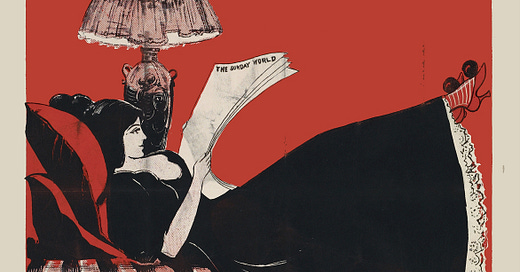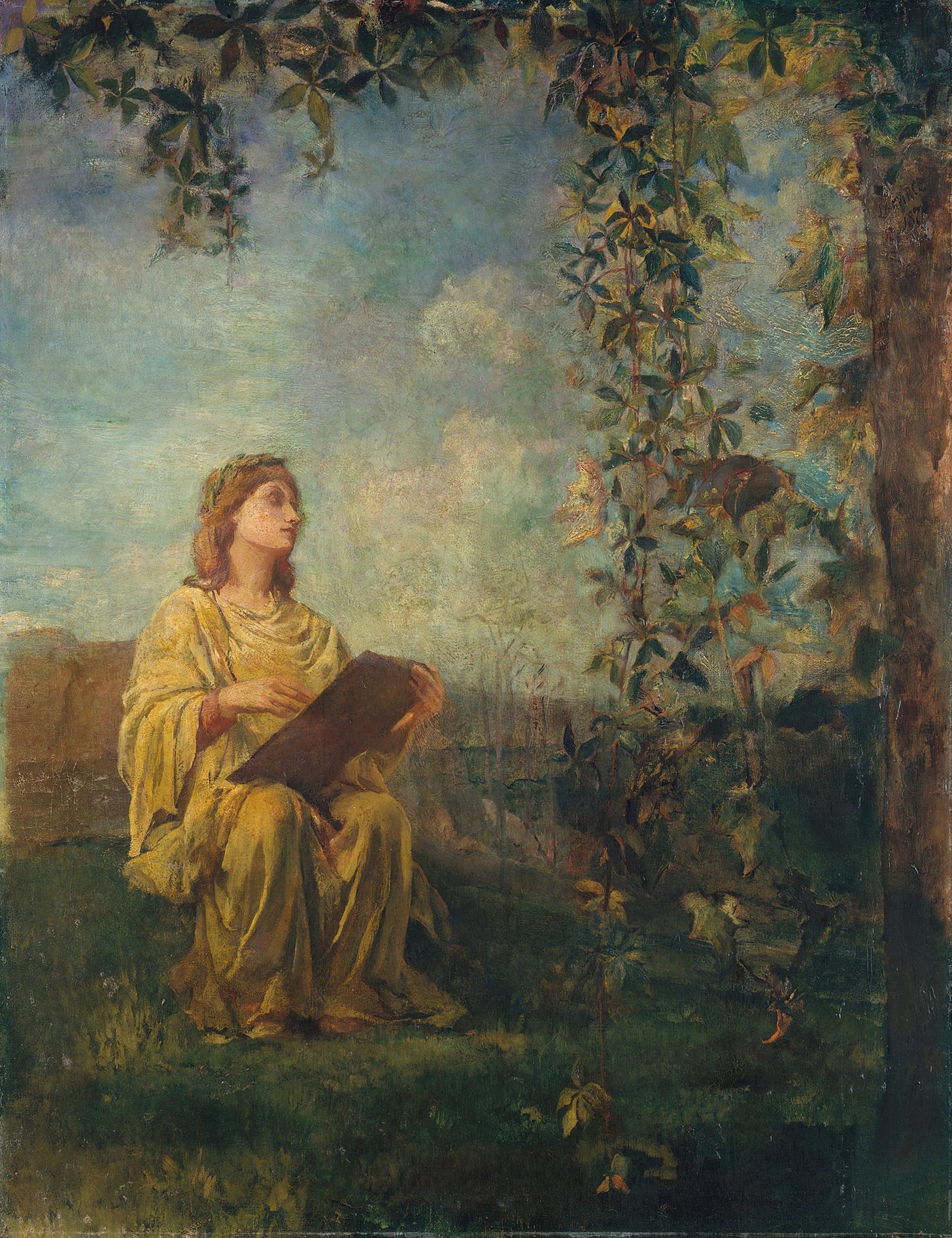Every few years (*cough* election years *cough*), I like to put out a friendly reminder that being plugged into daily breaking news can be absolutely crushing to a writer’s ability to create. In previous years, I spoke mainly from personal experience, but now that I’m also coaching writers, I’m hearing it from my fellow creatives.
A recurring theme in one-on-one and group coaching sessions lately has been how we’re all distracted and feeling creatively empty because of all the things going on in the world. This effect is particularly acute for those who have certain CliftonStrengths/personality characteristics that cause them to absorb feelings/vibes from the world around them and for those who are more sensitive to instability or strife in their environment. But really, it can affect almost anyone.
Why we can’t write
We start the day watching the news or scanning social media and see all the most scary, sensational, and horrible headlines (or even ones we’re excited about) and our brains go into a spin. Then we sit down to write and wonder why we can’t focus or why we’re filled with the dreaded “why bother?” feeling.
So. Let’s talk. We want to be informed citizens. We think if we don’t look at the latest headlines, we’re being negligent. However, looking day after day (or hour after hour) at things that are 1) usually incomplete information because breaking news is a developing story and 2) things we mostly can’t do anything about in the short term just makes us feel frustrated, sad, angry, ineffective and/or exhausted. That helps no one. And it scares the hell out of your muse.
Yes, vote. Yes, volunteer for causes that are important to you. Yes, send your money to organizations you care about. But often we use the idea of altruistic behavior to justify news consumption but then…don’t (or can’t) actually do anything beyond getting stressed out or venting about it on social media (which gives a sense of doing but really isn’t action). This is what the media and social media companies want—our eyeballs all the time and to give us the false sense that it’s our duty to give them that attention.
So how do we break out of that without totally sticking our heads in the sand? I have some thoughts.
Corral the News, Protect Your Muse
Don’t look at the news (or social media) before your writing session
This is probably one you’ve heard before, but it bears repeating. Once you put your brain in the Breaking news! Panic! World is burning! mode, you’re stuck. The sensitive, creative part of your brain is hiding in a corner and covering its head for the foreseeable future. Don’t open the door and let the world’s problems into your writing space.
Slow down your news
Breaking news is usually incomplete (and often inaccurate) and it’s designed to keep us watching/reading. What’s going on?! What will happen next?! The news business is…a business. It benefits them to have constant breaking news with highly sensational headlines. Start paying attention to how often the words “massive” and “unprecedented” are used in daily news stories. They are speaking to our most basic human instincts to keep us hooked.
So consider instead, a slow news plan. Once a day, at most, go to your trusted new source or sources and get the overview. Or go really old-fashioned and get your news once a week like people used to with their Sunday newspaper (you can do this with an online version, obviously.) You’ll get more thought-out, developed stories. You’ll get the facts after the confusion of breaking news has settled.
Consider a neutral, low-emotion news source
News sources, even the very reputable ones, have their biases and political leanings. We know that. It’s become very apparent in our country that people are getting very different versions of the news. I’m not against news sources that lean a little as long as there is still truth in the reporting. However, leaning sources are going to be more emotional in terms of content. They are more apt to have headlines that rile you. They want to drum up emotion so that you stay there. So consider adding a more neutral news source to your life, especially if you’re feeling very stressed and distracted by the news.
The website AllSides has a handy chart that shows you how different mainstream news sources lean. Taking some of the sensationalism out of the headlines and news delivery can really help.
PBS News Hour’s evening broadcast saved me during 2020. It’s a calm, straightforward, unsensational delivery of the news of the day. You get the summary and then can move on with your life. Some other options are text-only, just-the-facts news from 1440, a daily/weekly headline roundup newsletter from a trusted news source, or a radio/podcast summary of the news of the day from a trusted, fact-based source.
The main goal is to find a source that doesn’t take bad news and make it worse by pressing your fight/flight buttons.
Record the news so you can fast-forward to the pertinent information
Get the headlines and the facts and then fast-forward when they start getting sensational or showing graphic videos and such—or videos on repeat. Often I record the local news and just fast-forward to the weather because that’s all I want to know before going to sleep. Are we going to be swept away by a tornado tonight? No. Great. Thank you, goodnight.
Don’t get your news from social media (unless there is something immediate and urgent going on locally that hasn’t hit mainstream news yet)
Hot takes and fake news on social media are a big part of what got the world to the state it’s in right now. Don’t get your news from random, unverifiable, unsourced stories on social media. Please. I beg you.
The only exception is when something locally is happening that requires immediate information. When my parents lost their house in Hurricane Ida, I was on Twitter looking for hyperlocal information to find out if their house was affected.
If you care about a topic, get more deeply informed through…books.
On our visit to FDR’s house and presidential library last week, the tour guide threw out this quote from Harry Truman: “There is nothing new in the world except the history you do not know.”
I found some comfort in that statement. History is full of shocking events, crises, disasters, wars, dictators, plagues, etc. A lot of events are “unprecedented” to us because we haven’t lived through all the things. But in most cases, we’re not the first to go through it. Throughout history, solutions were found. Good people still fought for what was right. Humans have overcome a lot. We can continue to do so, but we can do that more effectively if we know the history or read expert analysis of a topic instead of relying on quick, sensational headlines or tweets.
Ryan Holiday’s podcast The Daily Stoic played an older episode this week after I had drafted this post, and he says this exact thing.
“Read books. Don’t watch the news. Read thoughtful, perennial analysis. Don’t follow speculative news reports. Limit your news consumption.” — Ryan Holiday, The Daily Stoic podcast, this episode
And he knows what he’s talking about. He wrote a book called Trust Me, I’m Lying about how manipulative the media can be. Do your research. Form your own opinions based on real knowledge.
Alright, I hope these tips help, but most of all, I want you to remember that what you are doing as a creative is important and worth protecting. Art, stories, music are all important and can change the world, even if that is simply by providing an escape for someone having a tough day in a complicated world.
That is worthy work. Don’t let that get stolen by the hot takes on social media or an app with constant breaking alerts or a news dude shouting at you. The headlines of the day will still be there after you are done working your own kind of magic. Protect your sacred brain space so that your muse can come out of hiding and do what she’s meant to do.
Now I’ll gently step off this wobbly soapbox and go follow my own advice. ;)
I’d love to hear your thoughts on this. Are you feeling distracted by the news? Have you put yourself on a news diet? And if you have other resources I haven’t mentioned, feel free to share!







Since 2016 I can't do live news. I was developing an ulcer. I know the media is bored and wants AMERICA: THE REALITY SHOW, but it's actually been great to not wake up and wonder what the leader of the free world said at 2:48AM. I reserve part of my day to check out the news headlines. I don't watch any news. Better if I can get a round up of important happenings and not ~feelings ~ about the happenings. I also listen to a couple of podcasts that will usually bring things to light as it relates to race or culture.
Number two empathy. I am definitely distracted by the news and trying to be on a news diet. I got back last night from a family reunion where I was surrounded by family members who talk about politics a lot. With the latest breaking news on Sunday, there was quite a bit of discussion and them wanting a constant refresh of what was going to happen next. It was good to see them, but I am definitely glad to be home.